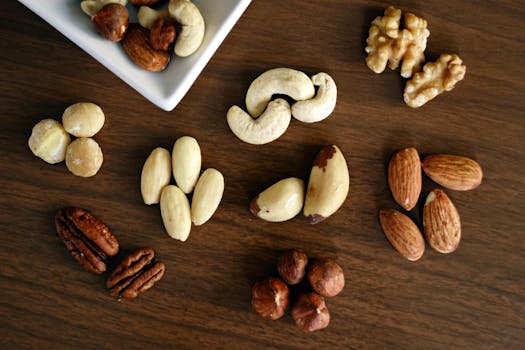The Benefits of Consuming Nuts and Seeds for Heart and Brain Health
Nuts and seeds have long been celebrated for their nutritional benefits, but recent research has illuminated their significant roles in promoting heart and brain health. Packed with essential nutrients, these small powerhouses can contribute to overall well-being and longevity. This article explores the myriad benefits of incorporating nuts and seeds into your diet, supported by scientific evidence and practical insights.
Heart Health: A Nutty Solution
Cardiovascular diseases remain a leading cause of death worldwide, making heart health a critical concern. Numerous studies have shown that regular consumption of nuts and seeds can significantly reduce the risk of heart disease.
- Rich in Healthy Fats: Nuts and seeds are high in unsaturated fats, particularly omega-3 and omega-6 fatty acids, which are known to lower bad cholesterol (LDL) levels and increase good cholesterol (HDL) levels.
- Antioxidant Properties: Many nuts, such as walnuts and almonds, are rich in antioxidants like vitamin E, which help combat oxidative stress and inflammation, both of which are risk factors for heart disease.
- Fiber Content: The high fiber content in nuts and seeds aids in digestion and helps maintain healthy cholesterol levels, further supporting cardiovascular health.
A study published in the New England Journal of Medicine found that participants who consumed a handful of nuts daily had a 20% lower risk of heart disease compared to those who did not. This compelling evidence underscores the importance of including nuts and seeds in a heart-healthy diet.
Brain Health: Fuel for Thought
Just as nuts and seeds benefit the heart, they also play a crucial role in maintaining cognitive function and overall brain health. The nutrients found in these foods can enhance memory, focus, and even mood.
- Omega-3 Fatty Acids: Walnuts, in particular, are an excellent source of alpha-linolenic acid (ALA), a type of omega-3 fatty acid that has been linked to improved cognitive function and a reduced risk of neurodegenerative diseases.
- Vitamin E: This vitamin is essential for brain health, and studies have shown that higher intakes of vitamin E can help delay cognitive decline in older adults.
- Polyphenols: Nuts and seeds are rich in polyphenols, which have been shown to improve brain function and protect against age-related decline.
Research published in the journal Frontiers in Aging Neuroscience indicates that individuals who consume nuts regularly have better cognitive performance and a lower risk of developing Alzheimer’s disease. This highlights the potential of nuts and seeds as a simple yet effective way to support brain health.
Practical Tips for Incorporating Nuts and Seeds into Your Diet
Incorporating nuts and seeds into your daily routine can be easy and enjoyable. Here are some practical tips:
- Snack Smart: Replace unhealthy snacks with a handful of mixed nuts or seeds. They provide a satisfying crunch and are nutrient-dense.
- Add to Meals: Sprinkle nuts or seeds on salads, yogurt, or oatmeal for added texture and nutrition.
- Nut Butters: Use almond or peanut butter as a spread on whole-grain bread or as a dip for fruits and vegetables.
By making small changes to your diet, you can easily reap the benefits of these nutrient-rich foods.
Conclusion: A Heart and Brain Health Powerhouse
In summary, the consumption of nuts and seeds offers a wealth of benefits for both heart and brain health. Their rich profiles of healthy fats, antioxidants, vitamins, and minerals make them an essential addition to any diet. With compelling evidence supporting their role in reducing the risk of heart disease and enhancing cognitive function, it is clear that these small foods pack a powerful punch. By incorporating nuts and seeds into your daily meals and snacks, you can take proactive steps toward a healthier heart and sharper mind.
